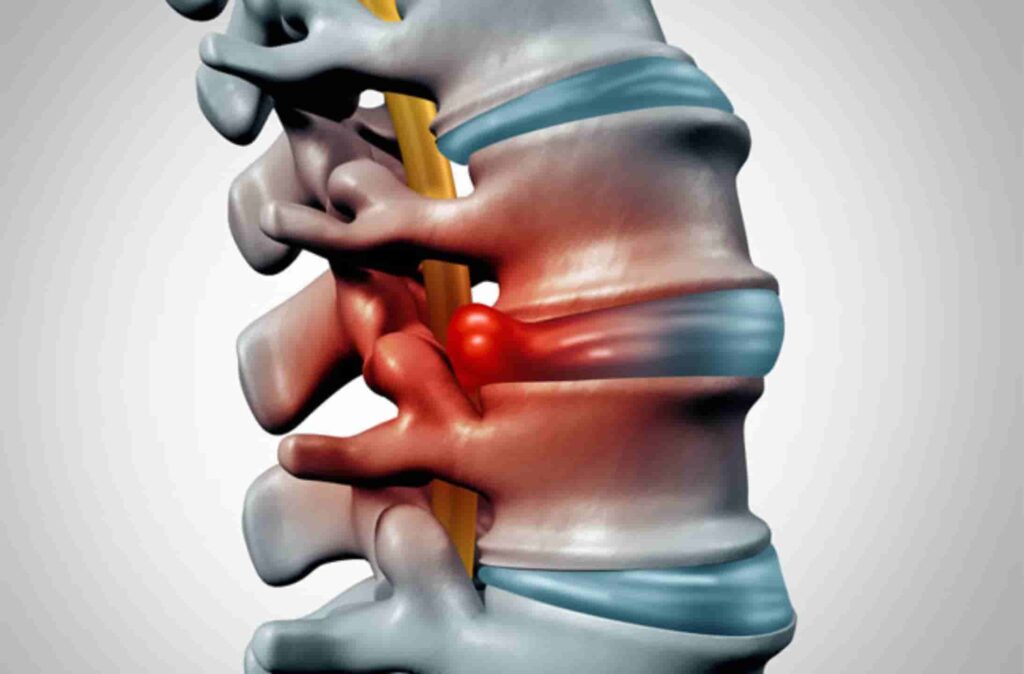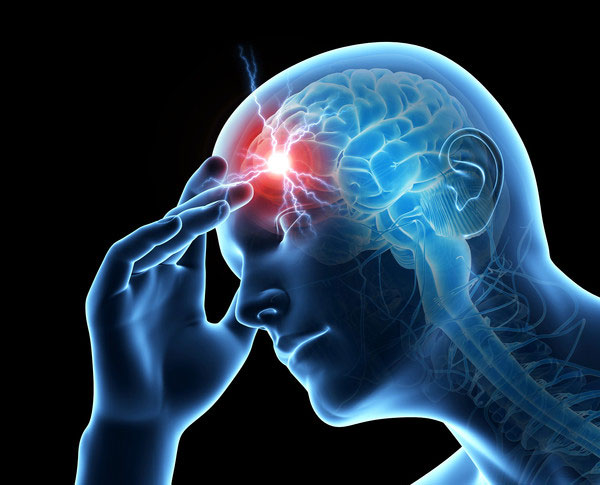Exploring the Therapeutic Promise of Medical Marijuana for Herniated Disc Disease
Introduction: Herniated disc disease, also known as a slipped or ruptured disc, is a prevalent condition affecting millions worldwide. It occurs when the soft inner core of a spinal disc pushes through a crack in its tougher exterior casing. This ailment often leads to excruciating pain, numbness, and discomfort, significantly impacting an individual’s quality of life. While traditional treatment options such as physical therapy, medication, and surgery exist, many patients seek alternative therapies due to concerns about side effects and efficacy. In recent years, medical marijuana has emerged as a promising avenue for managing the symptoms associated with herniated disc disease. In this article, we’ll delve into the potential benefits, risks, and considerations surrounding the use of medical marijuana in treating this condition.
Understanding Herniated Disc Disease: Before delving into the role of medical marijuana, it’s essential to grasp the fundamentals of herniated disc disease. The spinal column comprises a series of vertebrae separated by intervertebral discs. These discs act as shock absorbers, cushioning the spine’s vertebrae and allowing for flexibility. However, with age, wear and tear, or sudden trauma, these discs may degenerate or herniate, leading to nerve compression and subsequent pain.
Symptoms of herniated disc disease vary depending on the location and severity of the affected disc. Common manifestations include localized or radiating pain, tingling sensations, muscle weakness, and, in severe cases, bladder or bowel control loss. While some individuals experience mild discomfort, others endure debilitating pain that significantly impairs their daily activities.
Traditional Treatment Modalities: Conventional treatments for herniated disc disease typically involve a combination of conservative therapies and, in severe cases, surgical intervention. Non-invasive approaches include rest, physical therapy, nonsteroidal anti-inflammatory drugs (NSAIDs), muscle relaxants, and epidural steroid injections. These methods aim to alleviate pain, reduce inflammation, and improve mobility. However, their effectiveness varies among individuals, and some may experience adverse side effects or find little relief.
In cases where conservative measures fail to provide adequate relief, surgical options such as discectomy or spinal fusion may be considered. While surgery can alleviate pressure on the affected nerves and restore spinal stability, it entails inherent risks and a prolonged recovery period.
The Emergence of Medical Marijuana: Amidst the limitations of conventional therapies, medical marijuana has garnered attention for its potential analgesic and anti-inflammatory properties. Cannabis, the plant from which marijuana is derived, contains numerous active compounds called cannabinoids. Of these, tetrahydrocannabinol (THC) and cannabidiol (CBD) are the most studied.
THC is primarily responsible for marijuana’s psychoactive effects, inducing feelings of euphoria or “high.” Conversely, CBD lacks intoxicating properties but exhibits anti-inflammatory, analgesic, and neuroprotective properties. Together, THC and CBD, along with other cannabinoids and terpenes, contribute to the therapeutic effects of medical marijuana.
Potential Benefits of Medical Marijuana for Herniated Disc Disease: Research suggests that medical marijuana may offer several potential benefits for individuals with herniated disc disease:
- Pain Management: One of the most compelling reasons patients turn to medical marijuana is its analgesic properties. THC and CBD have been shown to modulate pain perception by interacting with the body’s endocannabinoid system, which regulates various physiological processes, including pain sensation. By binding to cannabinoid receptors in the brain and peripheral nerves, cannabinoids may reduce pain intensity and improve pain tolerance.
- Anti-inflammatory Effects: Inflammation plays a crucial role in the pathogenesis of herniated disc disease, contributing to nerve irritation and pain. CBD, in particular, has demonstrated potent anti-inflammatory properties, suppressing the production of pro-inflammatory cytokines and inhibiting immune cell activation. By attenuating inflammation within the spinal column, medical marijuana may mitigate tissue damage and alleviate symptoms associated with disc herniation.
- Muscle Relaxation: Muscle spasms and tension commonly accompany herniated disc disease, exacerbating pain and limiting mobility. THC exhibits muscle relaxant properties, which can help alleviate spasms and promote relaxation. By inducing muscle relaxation, medical marijuana may alleviate pain associated with muscle tension and facilitate physical therapy exercises aimed at improving flexibility and strength.
- Neuroprotective Effects: Herniated disc disease causes mechanical compression of nerves and induces biochemical changes that contribute to neuronal damage and degeneration. CBD’s neuroprotective effects have been well-documented in preclinical studies, with evidence suggesting that it can mitigate oxidative stress, reduce neuronal inflammation, and promote neural repair. By protecting nerve cells from further damage, medical marijuana may slow the progression of disc degeneration and preserve neurological function.
- Mood Enhancement: Chronic pain takes a toll not only on physical health but also on mental well-being, leading to depression, anxiety, and diminished quality of life. Medical marijuana’s mood-enhancing properties can provide psychological relief to individuals grappling with chronic pain and disability. THC’s euphoric effects may induce feelings of relaxation and euphoria, while CBD’s anxiolytic properties can alleviate anxiety and promote a sense of calmness.
Navigating the Risks and Considerations: While medical marijuana shows promise as an adjunct therapy for herniated disc disease, it’s crucial to approach its use with caution and awareness of potential risks:
- Psychoactive Effects: THC, the psychoactive component of marijuana, can impair cognitive function and psychomotor skills, potentially posing risks, particularly when operating machinery or driving. Individuals sensitive to THC’s psychoactive effects should opt for strains with higher CBD content or explore alternative delivery methods such as topicals or tinctures.
- Dependency and Addiction: Long-term use of marijuana, especially high-THC strains, may lead to dependency and addiction in susceptible individuals. Patients with a history of substance abuse or mental health disorders should exercise caution when using medical marijuana and consult with healthcare professionals to mitigate the risk of dependence.
- Drug Interactions: Medical marijuana may interact with certain medications, including sedatives, antidepressants, and opioids, potentially altering their effects or causing adverse reactions. Patients should inform their healthcare providers about their marijuana use to prevent potential drug interactions and ensure safe and effective treatment.
- Legal Considerations: While medical marijuana is legal in many jurisdictions, its legality varies from state to state and country to country. Patients should familiarize themselves with local regulations regarding the use, possession, and cultivation of medical marijuana to avoid legal repercussions.
- Lack of Standardization: The cannabis market lacks standardization in terms of product potency, purity, and labeling, making it challenging for patients to determine the appropriate dosage and formulation. Consulting with knowledgeable healthcare professionals and purchasing medical marijuana from reputable dispensaries can help ensure product quality and consistency.
Conclusion: Medical marijuana holds promise as a complementary therapy for managing the symptoms of herniated disc disease, offering potential benefits such as pain relief, anti-inflammatory effects, muscle relaxation, neuroprotection, and mood enhancement. However, patients should use it judiciously, weighing the potential benefits against the risks and considering individual factors such as tolerance, medical history, and legal considerations. By engaging in informed discussions with healthcare providers and adhering to best practices, patients can harness the therapeutic potential of medical marijuana to improve their quality of life amidst the challenges of herniated disc disease.
Disclaimer: This article is for educational purposes only and is not a substitute for professional medical advice, diagnosis, or treatment. Always consult a qualified healthcare provider with any questions about your health or medical conditions.

Dr. Nicholas Marsh is board-certified by the American Board of Anesthesiologists and has over 37 years of healthcare experience. Recognized by FindaTopDoc.com for clinical excellence, he now focuses on educating, supporting, and certifying patients for medical cannabis.







